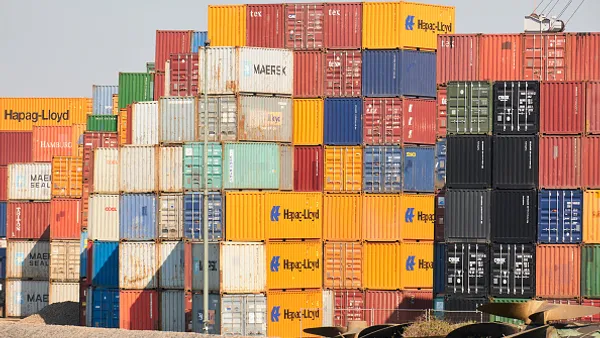Dive Brief:
- Global companies continued advancing slowly toward gender equality in the workplace, with 18 out of 3,895 surveyed qualifying as gender balanced, up from 10 last year, according to the 2022 Gender Equality Global Report & Ranking from Equileap. The ratings are based on the number of female executives, pay parity and parental leave policies, among other criteria.
-
Women, who still comprise less than half of the workforce across all levels, were most rare at the executive level, where they comprised 18%, up from 17% last year. They made up 5% and 13% of companies’ CEOs and CFOs, respectively, 26% of boards (from 25%), 25% of senior management (from 24%) and 37% of the workforce (flat).
-
“I was happy to see that the year-on-year, slow-but-steady advancements of the past have continued throughout the pandemic. However, this progress has to accelerate. We are still far from where we should be, and some of our findings continue to be shocking,” Diana Van Maasdijk, CEO at Equileap, said.
Dive Insight:
CFOs in the U.S. and globally are under increasing regulatory pressure to adopt environmental, social and governance (ESG) disclosure standards and diversity, equity and inclusion (DE&I) programs that bring more women into the workforce.
In August The Securities and Exchange Commission (SEC) backed a Nasdaq rule requiring race and gender diversity on corporate boards. In Italy the 2021 Equality Bill required gender pay gap reporting and enforced female board quotas and a 2019 legislative decree in Spain paved the way for equalized paternity leave, gender pay reporting and gender equality plans, according to the report from Equileap, a data provider which tracks gender equality in the workplace.
In the report's ranking of countries based on their corporation's overall gender equality performance, the U.S. (13th overall) lagged all others surveyed, aside from Japan, while France (1), Spain (2) and Italy (3) topped the rankings. That may in part be because the U.S. still has a way to go in terms of representation and inclusion policies, which push companies to institute women-friendly practices. For example, the U.S. is the only developed country that does not have national statutory provisions for paid parental leave, according to the report.
In addition to the regulatory pressures facing CFOs to pursue gender equality, a growing number of investors are looking to back companies that focus on gender equity and diversity. “There’s a large uptick in gender-focused products so potentially [gender equality initiatives] can drive more investments into those products,” Amelia Furr, head of sales at Morningstar Indexes, said in an interview. The total estimated net flows into open-ended funds and ETFs focused on sustainable investment/gender and diversity rose to $6.2 billion last year, up from $4.9bn in 2020, according to Morningstar.
Women's progress, albeit slow, comes as many feared that women’s inroads into the workforce might backslide as more women, who typically shoulder more responsibility for child care at home, were reported to experience burnout. One in three women last year said they considered downshifting their career or leaving the workforce, according to a McKinsey study.
Among the report's other findings: only 17% of companies globally publish their gender pay gap while fewer than 1% have closed their pay gap. In addition, this year's study marked the first time that more than half of the global companies surveyed had an anti-sexual harassment policy.














